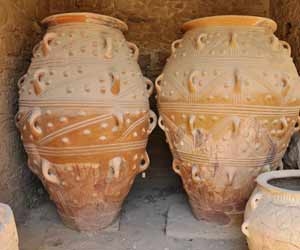Types of Archaeologist Jobs & Specialties
Professional archaeologists generally specialize in a particular area of archaeology that is of greatest interest to them. Many combine and add specialties over the course of their career as their research develops and to meet their professional needs. Two of the most basic areas that archaeologists specialize in are prehistoric and historic archaeology.

Prehistoric Archaeology
Prehistoric archaeology refers to the study of material remains from cultures that have left behind no written records. Since written records came into use at different times in history throughout different parts of the world, prehistory has no definite time period. For example, written records were in common usage in Europe long before they were in the Americas. Our understanding of prehistoric cultures, therefore, is largely dependent upon archaeological research.
Prehistoric archaeologists sometimes choose to further define their specialty by narrowing their focus onto such areas as lithic analysis, which is the study of prehistoric stone artifacts, or ceramic analysis, which is the study of archaeological pottery remains. Through such analyses, archaeologists have the ability to determine such things as the origin of the material and the function of the artifact.
Historic Archaeology
Historic archaeology refers to the study of peoples and cultures since the end of prehistory. Historic archaeology differs from prehistoric archaeology in that it makes use of both material remains and written records in order to understand the past. For example, an archaeologist studying the remains of a seventeenth-century French homestead would consult written records pertaining to that time and place in conjunction with the archaeological remains in order to gain better insight into its history.
Historical archaeologists utilize a variety of written records in their research. Examples of written records that they might use include:
- Archival records
- Explorers’ accounts
- Census records
- Election returns
- Tax lists
- Old newspapers and other periodicals
- Letters
- Diaries
- Historic maps
Prehistoric and historic archaeology are not the only specialties that archaeologists may narrow their focus to. They also generally choose to focus their research on specific geographic locations that interest them and/or major cultural developments that took place in the past. For example, some archaeologists may choose to study the Warring States Period of Ancient China, Bronze-Age Greece, or the Antebellum South of the United States. Others, however, may choose to study broader cultural developments in history, such as the African Diaspora or the Industrial Revolution.
Your research focus will undoubtedly evolve, shift, and transform over the course of your career to suit your interests and needs. But just remember, wherever your historical interests may lie, there is a place in archaeology for you.
Archaeologist Salaries


 Teach English in Asia
Teach English in Asia  Cruise Ship Jobs
Cruise Ship Jobs  Alaska Fishing Industry Jobs
Alaska Fishing Industry Jobs  Sharing Economy / Gig Economy
Sharing Economy / Gig Economy